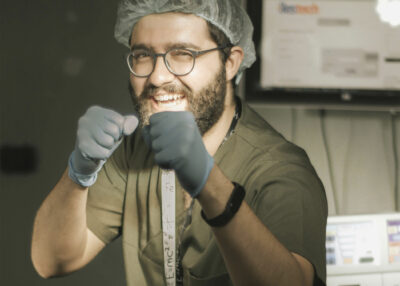Gut health plays a crucial role in our overall well-being. Disruptions in the gut microbiome, such as C-Diff and Candida overgrowth, can lead to significant health issues. This blog delves into how these overgrowths occur, their impacts, and strategies for maintaining a healthy gut.
The Role of C-Diff and Candida in Gut Health
Methane-Producing Bacteria and SIBO
Certain bacteria, like archaea, produce methane and contribute to gut issues such as Small Intestinal Bacterial Overgrowth (SIBO). Methane production can slow gut transit time, leading to symptoms like bloating, constipation, and discomfort.
The Double-Edged Sword of Antibiotics
While antibiotics are essential for treating infections, they can also kill beneficial gut bacteria, leading to imbalances. This disruption can create an environment where harmful bacteria, such as Clostridium difficile (C-Diff), thrive.
The Challenge of C-Diff Overgrowth
C-Diff is notorious for its ability to form biofilms—protective layers that prevent other beneficial bacteria from growing. These biofilms make C-Diff particularly challenging to eradicate. Overgrowth of C-Diff can lead to severe diarrhea, inflammation, and colitis.
Candida Overgrowth: More Than Just a Gut Issue
Candida, a type of fungus, can overgrow in the gut, leading to high levels of histamine production. This overgrowth can trigger various symptoms, including allergies, hives, brain fog, bloating, and changes in the skin and nails. The type of diet and bacterial presence in the gut significantly influence histamine levels.
Managing Overgrowth and Promoting Gut Health
Dietary Adjustments
A diet low in simple carbohydrates and sugars can help reduce the fuel for harmful bacteria and fungi. Incorporating high-fiber foods supports the growth of beneficial bacteria, promoting a balanced gut microbiome.
Probiotics and Prebiotics
Supplementing with probiotics can help replenish healthy bacteria in the gut. Prebiotics, found in foods like garlic, onions, and bananas, serve as food for these beneficial bacteria, aiding their growth and activity.
Targeted Interventions
In cases of severe overgrowth, targeted interventions, including specific antifungals or antibiotics, may be necessary. However, these should be used under medical supervision to avoid further disruption of the gut microbiome.
Taking Control of Your Health
Maintaining a balanced gut microbiome is crucial for preventing conditions like C-Diff and Candida overgrowth. By understanding the causes and implementing effective strategies, you can achieve and sustain optimal gut health. Remember, your gut health is a significant component of your overall well-being. Take proactive steps today to ensure a healthier tomorrow.
For personalized guidance and support, schedule a discovery call with Dr. Chanu Dasari at MGI Clinics. Our testimonials page features stories of patients who have successfully managed their conditions through the Mind-Gut-Immunity Method.
Start Your Journey to Better Health Today
Discover the transformative power of the Mind-Gut-Immunity Method! Over the past decade, Dr. Dasari has helped countless clients reduce inflammation and find relief from autoimmune issues, often in just 3-6 weeks. Now, you can start your journey to better health with our free training. Click the link below, choose your condition, and learn how our proven approach can help you feel better fast.
About the Author
Dr. Chanu Dasari, a distinguished clinician with a career spanning renowned institutions like Vanderbilt University, Oxford University, and the University of California, has made significant contributions to medical research and practice. His work, published in top peer-reviewed scientific journals and adopted by the US Department of Health, highlights his commitment to advancing healthcare. Dr. Dasari is board-certified by the American Board of Medical Specialties and the American College of Surgeons, with a specialization in hernia repair, gallbladder removal, cysts, digestive disease, and cancer. As the founder of the Mind-Gut-Immunity Clinic, he draws from personal experience with autoimmune and digestive dysfunction to lead a team dedicated to patient-centered care using evidence-based protocols.









































































































